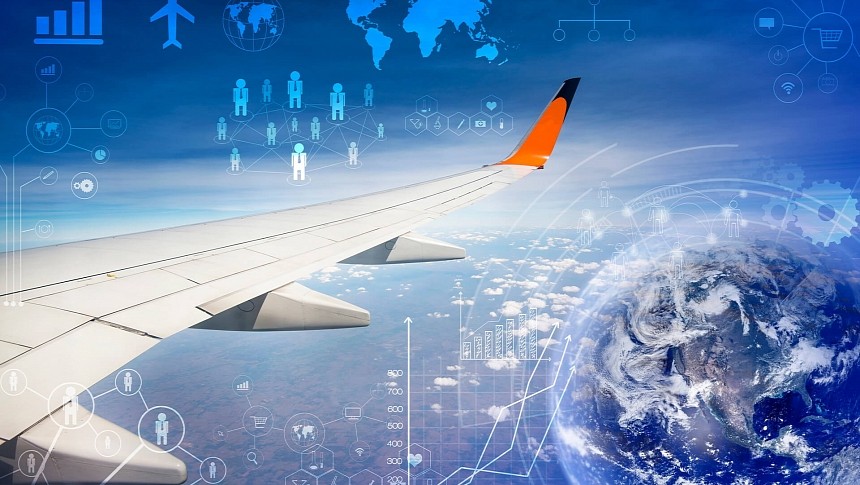Do you believe that the noise pollution associated with aviation is just as bad as toxic emissions? The Federal Aviation Administration (FAA) is determined to tackle it from different perspectives.
One thing’s for sure – the number of all kinds of aircraft is constantly increasing. Plus, we can’t predict entirely what things are going to be like once all those fancy air taxis and drones get the green light for commercial operations. But hopefully, the benefits will outweigh the potential negative effects.
America wants to reach the Holy Grail of zero-emissions for the entire aviation sector by 2050. To get there, the FAA is working two ways. One of them focuses on operational changes that can be implemented now, and the other one supports research that will help make things better in the future.
For instance, it currently supports a large-scale electrification of airports (in terms of gate equipment and ground vehicles) and optimized efficiency that saves fuel, thanks to a software that drastically reduces airplane taxiing at airports.
These are things that can be done right now for immediate benefits. One of the focuses for long-term improvement, on the other hand, is noise reduction. A total of 14 universities will work on this from different perspectives, after the FAA has recently awarded them $19 million.
This is part of ASCENT, a program that kicked off back in 2014, and has benefited from more than $130 million since then.
Some of the most interesting new projects for aviation noise-reduction will study the ways in which high noise levels impact communities. This nuisance can have serious negative effects health-wise, from sleep disturbances to cardiovascular and mental health risks.
Another thing worth noting is that the ASCENT research will take a look at a wide variety of aircraft, from standard helicopters to supersonic airliners, and all kinds of eVTOLs (electric vertical take-off and landing).
The Georgia Institute of Technology, for instance, will study the potential negative effects in terms of noise exposure, connected to the use of a large number of both private and commercial UAS (unmanned aircraft systems). Although one of the main selling points of eVTOLs is precisely the reduced noise level, compared to conventional helicopters, things change when we’re talking hundreds of them operating regularly.
At the same time, helicopters could become quieter, and this is what the Pennsylvania State University will explore with the help of computer modeling.
Supersonic aircraft are at the opposite end – high noise levels are one of the main obstacles in the way of regular supersonic flights. Several universities will focus on this particular aircraft category. The goal? They hope to establish noise certification standards for high-speed jets in the near future.
ASCENT also aims to boost technology innovation for next-generation aircraft and to make sustainable aviation fuel (SAF) more available and accessible.
America wants to reach the Holy Grail of zero-emissions for the entire aviation sector by 2050. To get there, the FAA is working two ways. One of them focuses on operational changes that can be implemented now, and the other one supports research that will help make things better in the future.
For instance, it currently supports a large-scale electrification of airports (in terms of gate equipment and ground vehicles) and optimized efficiency that saves fuel, thanks to a software that drastically reduces airplane taxiing at airports.
These are things that can be done right now for immediate benefits. One of the focuses for long-term improvement, on the other hand, is noise reduction. A total of 14 universities will work on this from different perspectives, after the FAA has recently awarded them $19 million.
This is part of ASCENT, a program that kicked off back in 2014, and has benefited from more than $130 million since then.
Some of the most interesting new projects for aviation noise-reduction will study the ways in which high noise levels impact communities. This nuisance can have serious negative effects health-wise, from sleep disturbances to cardiovascular and mental health risks.
Another thing worth noting is that the ASCENT research will take a look at a wide variety of aircraft, from standard helicopters to supersonic airliners, and all kinds of eVTOLs (electric vertical take-off and landing).
The Georgia Institute of Technology, for instance, will study the potential negative effects in terms of noise exposure, connected to the use of a large number of both private and commercial UAS (unmanned aircraft systems). Although one of the main selling points of eVTOLs is precisely the reduced noise level, compared to conventional helicopters, things change when we’re talking hundreds of them operating regularly.
At the same time, helicopters could become quieter, and this is what the Pennsylvania State University will explore with the help of computer modeling.
Supersonic aircraft are at the opposite end – high noise levels are one of the main obstacles in the way of regular supersonic flights. Several universities will focus on this particular aircraft category. The goal? They hope to establish noise certification standards for high-speed jets in the near future.
ASCENT also aims to boost technology innovation for next-generation aircraft and to make sustainable aviation fuel (SAF) more available and accessible.






